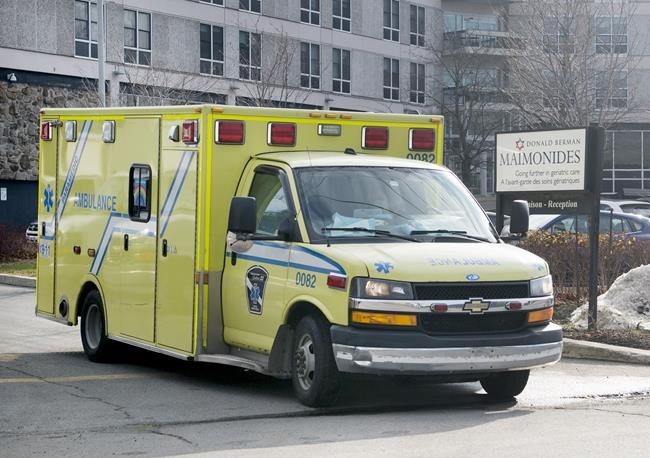Seven residents at Montreal care home get COVID despite receiving first vaccine dose – SooToday

MONTREAL — Quebec health authorities are examining how seven residents of a Montreal long-term care centre contracted COVID-19 despite being among the first to receive the Pfizer-BioNTech vaccine in the province.
Management at the Maimonides Geriatric Centre informed residents of the cases in a notice Tuesday, noting that residents were infected within 28 days of receiving the first of two vaccine doses.
Dr. Mylene Drouin, Montreal’s director of public health, said Wednesday that authorities were looking at the cases identified at Maimonides as well as at St-Antoine long-term care home in Quebec City — the other location to receive the first vaccines in the province.
“It is a small number to draw a conclusion,” Drouin said of Maimonides, but she added health experts were looking at possible reasons and whether any recommendations need to be changed as a result.
Quebec has decided to delay administering second doses to patients and has instead chosen to give a first dose to as many people as possible. Last week, a dozen Maimonides residents sued the province to obtain a second dose within 21 days of their first dose — the time frame set by the vaccine manufacturer.
Lawyer Vanessa Paliotti said residents had consented to be vaccinated subject to receiving two doses of the Pfizer-BioNTech vaccine in the 21-day time frame. “They would not have agreed to receive a single dose,” Paliotti said in an interview.
She said residents feared contracting the coronavirus if the wait for the second dose was extended for an indefinite period.
News of the COVID-19 infections at Maimonides did not surprise Dr. Donald Vinh, microbiologist and infectious disease specialist at the McGill University Health Center.
He said it takes about 12 to 14 days after vaccination for the body to build enough immunity to be protected against the novel coronavirus. Vinh said it is possible to be vaccinated and contract the coronavirus afterwards, as with any other vaccine. He noted the flu vaccine does not provide 100 per cent protection, but people who get the flu after being vaccinated have less severe symptoms.
At the St-Antoine facility in Quebec City, an outbreak four days before the inoculation campaign began on Dec. 14 is believed to be a factor in the cases among those who were vaccinated.
Mathieu Boivin, a spokesman for the health authority serving Quebec City, said that an unspecified number of residents developed COVID-19 after receiving the vaccine, but he could not say if any of them died, citing confidentiality surrounding medical records.
“Analyses are underway to fully understand the situation at the (long-term care home), but it is likely that several of these users were infected before receiving the vaccine and did not begin to develop symptoms until after receiving the vaccine,” Boivin said in an email. “In these cases, the immune response was not complete and instantaneous.”
Because the immune system needs two weeks to develop antibodies to resist infection, some users may have also been exposed after being inoculated and before their bodies had produced sufficient immune defence.
As of Tuesday, there were 73 active cases of COVID-19 at St-Antoine and 35 deaths linked to the virus.
None of it should call into question the efficacy of the vaccines, Boivin said.
“They have all demonstrated their effect in a scientifically convincing manner, and we wholeheartedly encourage all citizens to receive it as soon as their turn comes,” Boivin said.
This report by The Canadian Press was first published Jan. 13, 2021.
———
This story was produced with the financial assistance of the Facebook and Canadian Press News Fellowship.
Sidhartha Banerjee and Jessica Beauplat, The Canadian Press
Published at Wed, 13 Jan 2021 21:22:00 +0000




Comments
Loading…